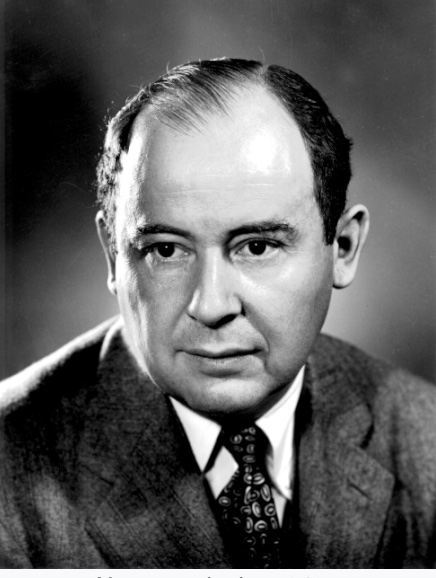
John von Neumann is not as well-known as Oppenheimer or Einstein because von Neumann was a mathematician, while Oppenheimer and Einstein were physicists. (see John von Neumann – Intelligence and IQ ) For the same reason, many people recognize the names, Stephen Hawking, Madame Curie and Isaac Newton, while few people have heard of Andrew Wiles, Kurt Gödel or Karl Friedrich Gauss. Why is this?
Most of us can relate to science, because it intersects with our lives in various contexts. We are aware of Oppenheimer on account of his role in the Manhattan Project that yielded the dramatic “atomic bomb” changing the course of World War II. We are aware of Marie Curie on account of her theory of radiation that had dramatic applications in a variety of contexts. And we are aware of Stephen Hawking because of his celebrated work on black holes and the beginnings of our universe.
Mathematics, on the other hand, deals with abstruse ideas in which most people have no interest. When Andrew Wiles proved Fermat’s Last Theorem in the early 1990’s, he solved a problem that had eluded mathematicians for more than 350 years. The mathematics community was abuzz with excitement, but this accomplishment was hardly acknowledged in the mainstream media, because most people are more interested in things they see as relevant to their lives.
Before the movie “The Imitation Game” was released, almost everyone in the mathematics and computer science communities knew of Alan Turing’s remarkable contribution to mathematics, yet few people in the general public were aware of his cracking of the enigma code or “Turing test.” This movie like the Oppenheimer movie introduced the public to some of the deep ideas in mathematics and science by embedding them in the human narrative. Similarly, Srinivasa Ramanujan, a celebrity in the mathematics community, was unknown to the general public until the book and movie, The Man who Knew Infinity embedded his discoveries in the narrative of his life.
Kurt Gödel’s discoveries are virtually inaccessible to almost anyone outside the fields of mathematics or philosophy. His life and discoveries appear in short movies or documentaries, but it would be difficult to share the essence of his discoveries with the general public.
These comments are not a denigration of the general public, but rather a recognition that each of us has a limited amount of time to devote to activities outside our work, and so our interest is drawn to those things that we regard as relevant to our lives. That is why most people are interested in knowing how to drive a car and a much smaller number are interested in understanding the mechanism under the hood. That is also why most people don’t know who von Neumann was.
